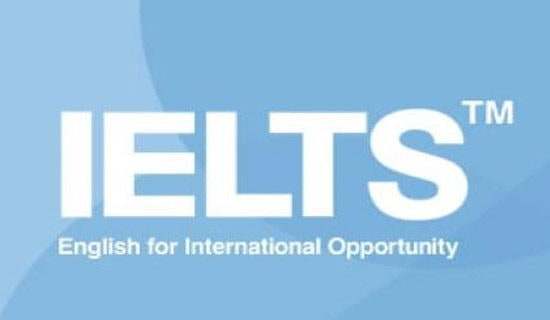- 相关推荐
2016雅思听力核心考点:同义置换
同义置换,即平行短语,是活跃在雅思听力各大题型中的核心考点。虽说不少烤鸭一致认为听力部分在雅思考试中是比较容易搞定的,但还是有不少考生抱怨,听力题想得高分也绝非易事。下面,yjbys网小编将就同义置换现象给广大考生具体举例分析。

一、同义词、近义词
最常见的同义置换,通常出现在Section 2,3中,填空题选择题皆有可能出现。
请看以下两个例子:
1)剑四Test 2 Section 2 Question 13:
International students may find stress difficult to handle because
A. they lack support from family and friends
B. they don’t have time to make new friends
C. they find it difficult to socialize
听力原文:stress → anxiety, handle → cope with
A: lack →without
2)剑五Test 2 Section 4 Question 31:
More than _____ times as big as the UK.
听力原文:more than → over, as big as the UK → the size of the UK
3)E.g. However, women are more prepared to ______ about them.
听力原文:more prepared to → more willing to
由此可见,雅思听力题目的同义词置换频度还是比较高的,虽然没有直接考查考生的词汇量,但能够间接地考察考生对关键词灵活处理的能力。以下还有一些高频同义词和近义词,朗阁海外考试研究中心的专家希望考生们能够在此基础上自行总结出真题里的同义置换词,切实抓住词的内在含义而非词的形式和表达方式,以不变应万变。
grow → increase, expand, rise, improve, soar, climb, extend, rocket
contribute to → cause, trigger, lead to, result in, account for, give rise to, etc.
significant → crucial, enormous, dramatic, tremendous, remarkable, substantial, etc.
like → resemble, alike, identical, twin, similar
depend on → rely upon(on), count on, lean on, reckon on, rest on, etc.
large → big, considerable, enormous, gigantic, substantial, vast, massive, numerous, tremendous
before → prior to, earlier than, ahead of, previously, formerly, used to, etc.
disadvantage → drawback, minus, downside, deficiency, problem, flaw, weakness, weak point
二、词性转换
一般情况下词性转换就是形容词,动词,名词,副词之间的相互转换。请看以下例子:
剑四 Test 3
23. In the seminar the work on writing aims to improve
A. confidence
B. speed
C. clarity
听力原文:techniques to write clearly. Clearly → clarity的paraphrase.
(副词与名词间替换)
类似的例子有很多,真题里随处可见。以下是经常发生同义置换的词:
clear—clarity
wide—width
Europe—European
satisfy—satisfactory/satisfaction
photocopier—photocopying facilities
available—availability
assess—assessment
unemployment—unemployed
anxious—anxiety
三、逻辑和句式转化
此类同义转化经常出现在Section 3,4中。试卷上的表达方式和听到的内容差异较大,也是广大考生跟不上节奏的重要原因。试想,如果没有提前读试题(这个现象非常普遍),在录音开始时才开始浏览,此时考生还要听录音,卷面上的用词面目全非,那么对于基础一般、反应较慢的考生来说正确率可想而知。所以熟悉逻辑转化和句式变化在此就显得尤为重要了。请看以下几个例子:
1)听力原文:Assertiveness training for pupils who are liable to be victims is worthwhile...
题干:For example, potential______ of bullying can be trained to be more self-confident.
2)题干:When investing in stocks and shares, it is suggested that women should put a high proportions of their savings in ______.
听力原文:a high proportions of 在此被替换成了70%.
3)题干:At that time, local craftsmen first built an iron forge just behind the village here.
听力原文:The metal industry was established at Riverside Village by ______.
注意:此句中出现了主被动句的互换。也就是说,卷面上出现了被动语态,考生一定要留心主动语态的出现,也就意味着宾语与主语可能位置倒置。一定要留心一开头出现的主语。反之若题干是主动语态,则应积极联想被动形式。
4)剑五 Test 4
25. What does Karin think the company will do?
A. look for private investors
B. accept a takeover offer
C. issue some new shares
选项B→ they have the choice of accepting the very favorable terms that another company…have given them to buy them out.
选项C→ Or they could decide on a bolder move and offer some new shares if they wanted.
√选项A→ they will start trying to find individuals who’d be prepared to back them with some of the capital they need.
5)剑五 Test 4
26. How does the tutor suggest the company can recover?
A. by appointing a new managing director
B. by changing the way it is organized
C. by closing some of its retail outlets
选项A→ Sometimes there is a simple fix such as changing the guy at the top.
选项C→ I suspect they will seek to shut down some of their shops.
√选项B→ …would be to alter how they’re running things-the management layers and processes.
通过一定的练习,掌握前两个方面还是比较容易的,可以在考前的真题练习中不断总结和记忆。而对于第三个方面,则是出题人全面考察考生的英文技能水平,考生需要通过一个比较长的周期来训练。请广大考生记住一点,那就是:paraphrase始终是贯穿雅思听力的核心技能,要想在听力考试中取得理想的成绩,这是至关重要的必训练项目,望广大考生引起注意。
【雅思听力核心考点:同义置换】相关文章:
雅思听力核心词汇同义词总结08-10
雅思听力高频核心词汇同义词替换08-18
雅思听力核心词汇总结:同义词10-05
雅思听力核心词汇08-17
雅思听力核心词汇讲解10-04
雅思听力核心词汇总结07-22
2016雅思听力重要考点盘点10-18
2017年雅思听力核心词汇备考05-04
雅思听力数字考点常用的英语表达06-17
雅思听力词汇08-18